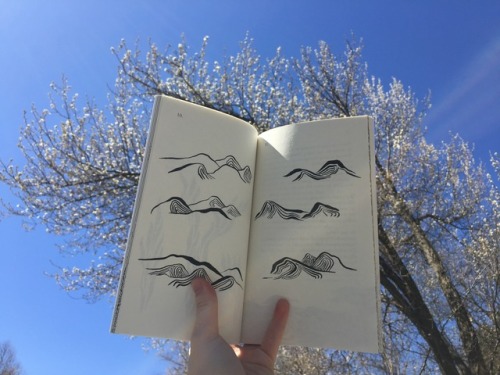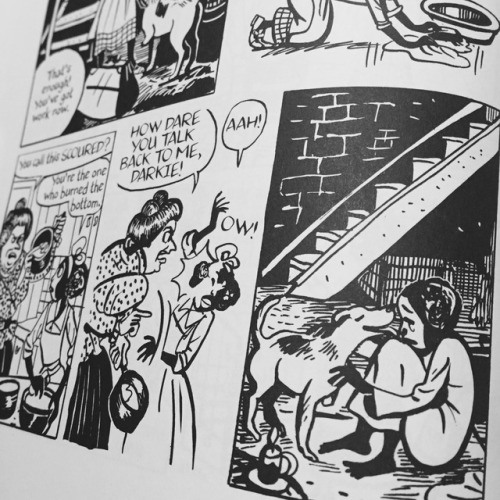Morrison’s poetry has a crispness of detail and a taut simplicity that engages and the book is further enhanced by the artwork throughout
We Doubt The Call Even As We Answer It
by Meghan Rose Morrison
Lost Alphabet
2017, 86 pages, 5.0 x 0.2 x 8.0 inches, Paperback
$11 Buy on Amazon
“You and the ocean, both salt and water, both rocked by the moon.”
A consistent dismissal of criticism is “you’re not the intended audience”, a sentiment I generally feel is bunk. A book, a song, a movie, they are all things consumable by anyone and have the potential to be appreciated by anyone. Yes, tastes vary, but a good show for kids can often be appreciated by an adult with the right sensibility, the cheesiest pop song can be adored by the snobbiest of Pitchfork writers, and even the best chefs can be lured in by a simple hot dog smeared in mustard.
Yet I was very surprised to find myself immersed in We Doubt The Call Even As We Answer It, a new book of poetry by first time author M.R. Morrison. It felt odd to be pulled in by its sometimes fierce, sometimes soft tones, because I’m far more a reader of prose than poetry and I’m probably not the intended audience by some years (okay, probably many). But immersed I was, for its a book that pulls one in slowly and, much like the water that flows through the themes of the 29 poems it contains, takes the shape of of the vessel reading it. It didn’t matter that I’m a grizzled coot at this point and most of the audience for the book must be tasteful twenty-somethings. Its words filled me and I enjoyed feeling her art through my own lens and finding it fitting like a favorite t-shirt.
“…eyes downcast on the burnt coffee of her freckles…”
Ms. Morrison’s poetry has a crispness of detail and a taut simplicity that engages and the book is further enhanced by the artwork throughout. It seeps through every page, evoking water at every turn, whether it’s the ocean or waving fronds of seaweed. Clean penciled lines that soothe by their simplicity but help create the feeling that the book is of a piece. It’s not simply a catalogue of the author’s latest poems, it’s a crafted work that’s designed and not just produced.
I don’t think I’ve bought a book of poetry since The Canterbury Tales, to be honest, and to think of its generic college-book cover and plain pages it’s no wonder that one might not be pulled in. I certainly wouldn’t say that every book should have art plastered through it for the sake of art, but I can say that a book, an object to be held and felt, can only be enhanced through the addition of complementary presentation. Think of the best book covers you’ve seen of Nineteen Eighty-Four or the most famous version of the cover of The Great Gatsby (the one that doesn’t feature Leonardo DiCaprio). Gatsby is a fine book but, oh, how that imagery adds to it. It starts the story right on the cover and no matter what Hemingway thought of it it’s endurance is its only necessary recognition.
In We Doubt The Call everything from the soft-textured cover to the blackened pages featuring snippets of partially heard far off conversations to the drawings that hold the words aloft celebrates the tactile nature of books. The site this review comes from has a mission to shine a light on “remarkable books that belong on paper” and this slim volume nails that intention. It’s a remarkable little thing that will have a long life on my bookshelf.
“Boys on bicycles pass making verbs of nouns.”
I’m very glad I wasn’t too afraid to try this book because it didn’t fit the preconceived notions of my own taste. The purring syllables of the poems, the agile alliteration and use of recurring themes, the way the art buoys the reader through the book. It’s a book of brash youth, sometimes baring too much in the way that only sheer creative exuberance can, but it works and sticks with you, whether you’re grizzled, graceful, or a little of both.
– Rob Trevino
June 2, 2017













































































































